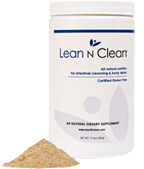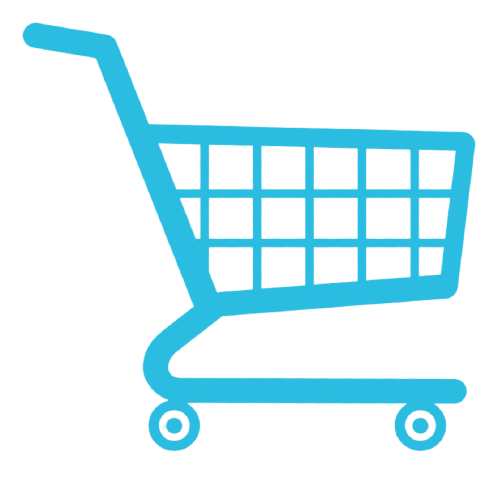Do you suffer from Chronic Constipation?
IF you are suffering from Constipation, IBS, Diverticulitis, Hemorrhoids, Acne, Overall fatigue, you have found the natural/safe remedy-Lean N Clean®.
Taking Lean N Clean® as prescribed results in increased fiber intake, increased fluid consumption, and healthy bowel movements at normal intervals that don’t require straining. With Lean N Clean®, you can be in charge of regulating your bowel back to normal and functioning optimally. Taking Lean N Clean® can gradually help you get rid of the toxic buildup in your colon and therefore alkalize and detox your body.

What Our Customers Say
“I am taking Lean N Clean® for intestinal cleansing/detox and chronic constipation and it has been one of the best things that has ever happened for me. I have had constipation for most of my life. It got to the point that I had to take laxatives to go to the bathroom and even then they didn’t work many times.
I am now pretty regular while I am talking Lean N Clean® (and no laxatives are needed)! I do have an occasion or two of constipation but I know it’s because I have not drunk enough water. So I thank you enormously for Lean N Clean®. I’ve spent so much money in the past for laxatives and cleanses that would work for only a short time and nothing ever worked as good as Lean N Clean®!”
-Patty S., Orlando, FL
DISCLAIMER: Individual result may vary.
How to relieve constipation with Lean N Clean®
Constipation is the infrequent and difficult passage of stool. The frequency of bowel movements among healthy people varies greatly, ranging from two or more movements a day to at least four per week.
As a rule, if more than three days pass without a bowel movement, the intestinal contents may harden and a person may have difficulty or even pain during elimination. Straining during bowel movements or the feeling of incomplete evacuation may also be reported as constipation.
Constipation can lead to complications, such as hemorrhoids caused by extreme straining or fissures caused by the hard stool stretching the sphincters. Bleeding can occur for either of these reasons and appears as bright red streaks on the surface of the stool. Fissures may be quite painful and can aggravate the constipation that originally caused them.
Older adults are five times more likely than younger adults to report problems with constipation. Poor diet, insufficient intake of fluids, lack of exercise, the use of certain drugs to treat other conditions, and poor bowel habits can result in constipation.
Diet and dietary habits can play a role in developing constipation. Lack of interest in eating , a problem common to many single or widowed older people, may lead to heavy use of convenience foods, which tend to be low in fiber. In addition, loss of teeth may force older people to choose soft, processed foods, which also tend to be low in fiber.
Older people sometimes cut back on fluids, especially if they are not eating regular or balanced meals or to avoid urinating if they experience stress incontinence. Water and other fluids add bulk to stools and can be a cure for constipation.
The preoccupation with bowel movements sometimes leads older people to depend heavily on stimulant laxatives, which can be habit-forming. The bowel begins to rely on laxatives to bring on bowel movements, and over time, the natural mechanisms fail to work without the help of drugs. Habitual use of enemas also can lead to a loss of normal function.
Causes of constipation
Constipation is a symptom, not a disease. Like a fever, there are many different causes of constipation. The following is a list of some of the most common causes of constipation:
- Poor Diet. A main cause of constipation may be a diet high in animal fats (meats, dairy products, eggs) and refined sugar (rich desserts and other sweets), but low in fiber (vegetables, fruits, whole grains), especially insoluble dietary fiber, which helps move bulk through the intestines and promote bowel movements. Some studies have suggested that high-fiber diets result in larger stools, more frequent bowel movements and, therefore, less constipation.
- Irritable Bowel Syndrome (IBS). Also known as spastic colon, IBS is one of the most common causes of constipation in the U.S. Some people develop spasms of the colon that delay the speed with which the contents of the intestine move through the digestive tract, leading to constipation.
- Poor Bowel Habits. A person can initiate a cycle of constipation by ignoring the urge to have a bowel movement. Some people do this to avoid using public toilets, others because they are too busy. After a period of time, a person may stop feeling the urge. This leads to progressive constipation.
- Laxative Abuse. People who habitually take stimulant laxatives become dependent upon them and may require increasing dosages until, finally, the intestine becomes insensitive and fails to work properly.
- Travel. People often experience constipation when traveling long distances, which may relate to changes in lifestyle, schedule, diet and drinking water.
- Hormonal Disturbances. Certain hormonal disturbances, such as an underactive thyroid gland, can produce constipation.
- Pregnancy. Pregnancy is another common cause of constipation, which may be partly due to hormonal changes during pregnancy.
- Fissures and Hemorrhoids. Painful conditions of the anus can produce a spasm of the anal sphincter muscle, which can delay a bowel movement.
- Specific Diseases. Many diseases that affect the body tissues, such as scleroderma or lupus, and certain neurological or muscular diseases, such as multiple sclerosis, Parkinson’s disease and stroke, can be responsible for constipation.
- Medications. Many medications can cause constipation. These include pain medications (especially narcotics), antacids that contain aluminum or calcium, antispasmodic drugs, antidepressant drugs, tranquilizers, iron supplements, anticonvulsants for epilepsy, antiparkinsonism drugs and calcium channel blockers for high blood pressure and heart conditions.
Relieve Constipation
For most people, dietary and lifestyle improvements can increase the chances to relieve constipation. Above all, it is necessary to recognize that a successful treatment program requires persistent effort and time. Constipation does not occur overnight and it is not reasonable to expect that constipation can be relieved overnight.
Products
Lean N Clean®
Digestive Issues
- Diverticulitis
- Crohn’s Disease
- Celiac Disease
- Irritable Bowel Syndrome (IBS)
- Constipation
- Hemorrhoids
- Acne Cure and Prevention
- Bad Breath Cure and Prevention
- How to Regulate Your Bowel
Cleansing Benefits
Digestive Health
- Visit www.acidgone.com to learn about our Acid Reflux/GERD/heartburn- product- Acidgone®
- Read About How You Can Avoid Being a Willing Medical Victim on willingmedicalvictims.org
- Are you an independent thinker? Share your important thoughts to benefit humanity on debateandshare.com

